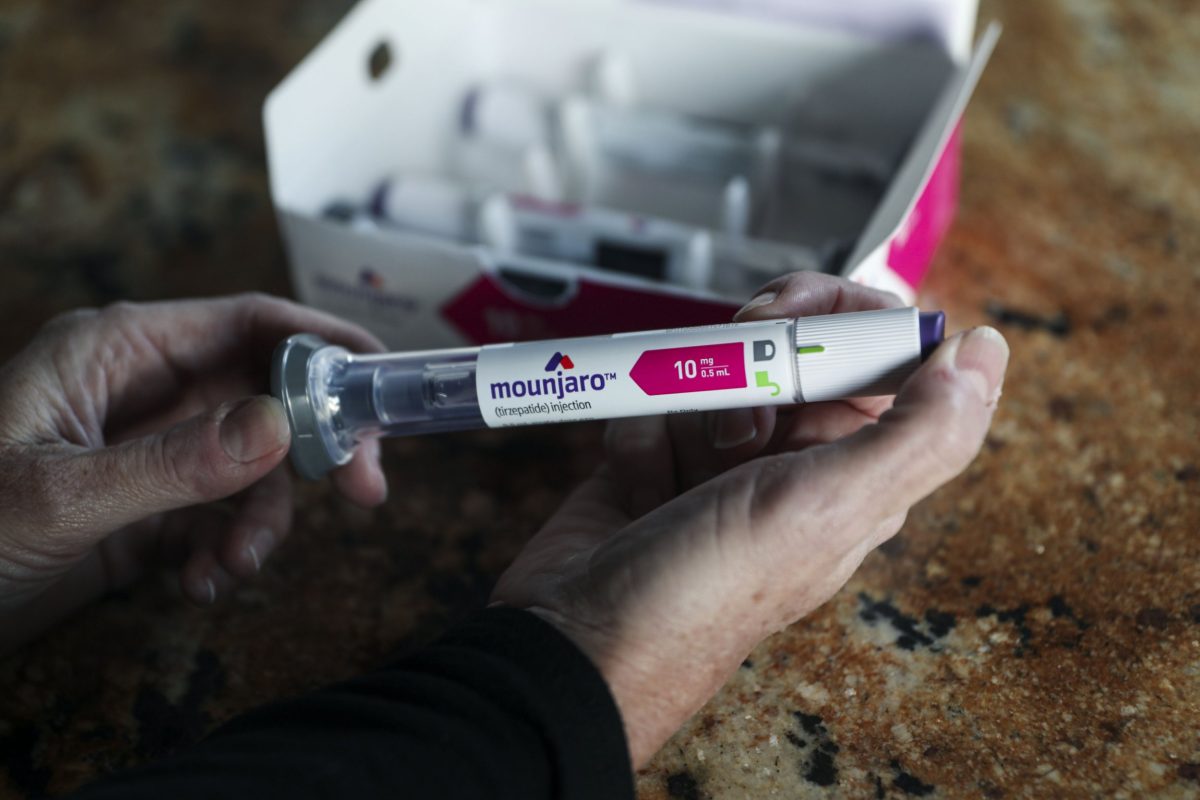
The NHS has begun a mass rollout of weight loss jabs in England, with GPs allowed to prescribe the medicine for the first time.
Over the next 12 years through NHS primary care providers, 1.6 million people are expected to receive tirzepatide, a weight loss drug sold under the brand name Mounjaro.
The drug was initially produced and licensed for type 2 diabetes by American pharmaceutical giant Eli Lilly . The drug reduced the appetite for patients making them feel fuller for longer.
Mounjaro belongs to a family of weight loss medicines used to help manage blood sugar, alongside the popular semaglutide jabs sold under the brand names Wegovy and Ozempic .
Tirzepatide was found to reduce body weight by 20.2 per cent in a study of 751 participants published in the New England Journal of Medicine in May, outperforming semaglutide, which gave rise to a 13.7 per cent reduction.
Around 220,000 people are estimated to receive Mounjaro over the next three years in the first phase of the NHS rollout.
Analysis by the Tony Blair Institute for Global Change has shown that increasing access to weight loss jabs such as Wegovy and Mounjaro could save billions by keeping people in work for longer.
Economic modelling by the think tank found that £52bn could be saved by 2050 if 15 million patients received the jabs, which prevent chronic diseases that stop people from working.
It would also reduce Department for Work and Pensions spending on benefits by an estimated £3.47bn a year by 2035, the think-tank said.
Who will be eligible for the drug?
As of Monday, people with a body mass index of at least 40 and four of the following weight-related health conditions will be eligible for Mounjaro:
- Dyslipidaemia (abnormal fat levels in the blood)
- Hypertension (high blood pressure)
- Obstructive sleep apnoea (when your breathing stops and starts while you sleep)
- Cardiovascular disease (heart and blood vessel disease)
- Type 2 diabetes mellitus
Those who meet the qualifying criteria will be able to access the drug if their clinician deems it the most appropriate treatment option.
While the National Institute for Health and Care Excellence (Nice) has recommended Mounjaro for the management of obesity, it advises patients to couple the treatment with a balanced, reduced-calorie diet as well as regular physical activity. Ozempic is yet to be approved by Nice.
People who receive the drug will also have access to wraparound care, which provides dietary and physical activity advice.
The drug is not recommended for women who are breastfeeding, pregnant or planning to get pregnant.
How is Mounjaro consumed?
Mounjaro is consumed through an injection administered once a week by patients themselves.
Read Next: Mounjaro v Wegovy: Inside the race to reveal the best weight-loss jab
The drug is injected into the stomach, thighs or the back of the upper arms.
Doses usually begin at 2.5mg to 5mg, but could be raised as high as 15mg, depending on the outcomes of the treatment.
The NHS has advised those taking hormone replacement therapy (HRT) to consider using patches or gels which are absorbed through the skin.
This is because Mounjaro injections may hinder the body’s ability to absorb HRT.
Those taking contraceptive pills are also advised to use additional methods of contraception, such as condoms. This is because contraceptive pills may not be absorbed by the body while Mounjaro is being used.
What side-effects could Mounjaro have?
According to Eli Lilly , the most common side effects experienced by patients taking Mounjaro include:
- Nausea
- Diarrhoea
- Decreased appetite
- Vomiting
- Constipation
- Indigestion
- Stomach Pain
In its clinical trials, the company observed that nausea, vomiting and diarrhoea were mostly experienced when the dose of Mounjaro was being increased, with the side effects decreasing over time.
What is the rollout aiming to achieve?
Treating conditions associated with obesity costs the NHS an estimated £11.4bn each year , according to a study carried out by Frontier Economics. It is the second biggest preventable cause of cancer in the UK.
Backing the Mounjaro rollout, Health Secretary Wes Streeting said “we now have the science, technology, and knowledge to end the obesity epidemic, if we seize this opportunity”.
He added: “Obesity jabs are used by 1.5 million people in the UK, mainly through private prescriptions.
Read Next: Why Ozempic could be the answer to ageing (and it’s not about weight loss)
“The NHS was founded on a promise to ‘universalise the best’, and this Government is determined to bring revolutionary modern treatments to everyone who needs them, not just those who can afford to pay.
“This rollout is an important step in making these medicines more widely available, and beginning to shift the focus of healthcare from sickness to prevention, which our forthcoming 10-year plan will deliver.”
Dr Claire Fuller, co-national medical director (primary care) at NHS England, said: “We urgently need to address rising levels of obesity and prioritise support for those who are experiencing severe ill health – and greater access to weight loss drugs will make a significant difference to the lives of those people.
“These drugs are an important tool alongside the range of wraparound NHS support and advice on good nutrition and increasing physical activity, which will be vital in helping some people lose weight and reduce their risk of serious long-term conditions.
“While not everyone will be eligible for weight loss drugs, it’s important that anyone who is worried about the impact of their weight on their health discusses the range of NHS support available with their healthcare professional.”

Posting Komentar